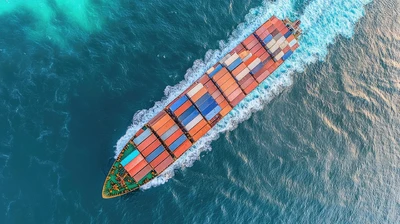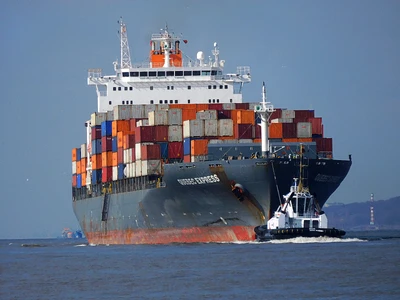
Small e-commerce parcels, once a trickle, have become a torrent, drawing increased scrutiny globally. The U.S. move to impose duties on small parcels has significantly impacted players like Temu, who previously benefited from duty-free exemptions (known as Section 321 or de minimis). This has led to a sharp decrease in parcels heading to the U.S., with a notable shift towards markets like the EU.
This "diversion" of goods from the U.S. has put the EU, Japan, Canada, and other markets on high alert. The EU is now introducing a fixed fee for small parcels and plans to eliminate its duty-free threshold. Japan is also taking action, and the entire G7 group (comprising the U.S., UK, France, Germany, Italy, Japan, and Canada) is considering imposing taxes on small parcels.
The EU's proposed €2 fixed fee for small parcels may seem minor, but many sellers indicate it could make it nearly impossible to profit on goods priced under €30.
Even though the U.S. has adjusted its duty rates for small parcels valued under $800, the added costs are proving "unbearable" for e-commerce platforms and sellers who once enjoyed duty-free status. This has sparked a new trend of "de-Americanization."
Europe has become the primary destination for this shift in small parcel traffic. Temu, a major beneficiary of small parcel duty exemptions, has significantly increased its investment in the European market. Its advertising spend in France has surged by 40% and in the UK by 20%. Temu has high hopes for Europe; research firm Emerce predicts that 35% to 40% of Temu's Gross Merchandise Value (GMV) will eventually come from Europe, making it Temu's largest revenue source, surpassing the U.S.
Temu's movements are often indicative of the broader trends among thousands of cross-border small parcel sellers. In 2024, an estimated 4.6 billion small parcels entered Europe under duty-free or relaxed regulatory policies—averaging over 145 parcels per second, with 91% originating from China. With the U.S. tightening its borders, Europe is now facing considerable pressure.
The EU has responded by planning to levy a fixed fee of €2 per small parcel shipped directly to residences, while parcels sent to warehouses will incur a €0.50 (approximately £0.42) fee. This will affect major Chinese platforms including Temu, SHEIN, and Alibaba. This €2 fixed fee is not a tariff but a transitional arrangement, with the EU expected to completely eliminate the small parcel duty-free policy by 2028. There are also reports that the European Commission supports accelerating customs reforms to begin next year.
Meanwhile, the UK is also taking action. Chancellor of the Exchequer Rachel Reeves announced in late April a review of the import tax system for low-value goods, specifically scrutinizing the "dumping of low-priced goods from Chinese e-commerce companies into the UK market." This indicates that duty-free policies in the EU (for small parcels under €150) and the UK (for parcels under £135) could change very soon.
Japan's policy is more specific. Its Ministry of Foreign Affairs has unveiled a draft plan to cancel the consumption tax exemption for imported goods valued under ¥10,000 (approximately $65 USD). Platforms like Amazon and Rakuten will be required to collect consumption tax as "deemed suppliers." Furthermore, starting in 2026, Japan will impose a 10% consumption tax on small parcels from platforms like Temu and SHEIN.
The issue of small parcels has gained significant attention across the entire G7 group. During the G7 Finance Ministers' meeting in Banff, Alberta, Canada, on May 20, Canadian Finance Minister Chrystia Freeland stated that G7 nations have begun discussions on imposing tariffs on low-value products from China. The agenda reportedly includes addressing issues like overcapacity and non-market practices, with further measures expected to curb "excess supply from China."
Temu and SHEIN are the primary drivers of the massive influx of "low-value parcels" into G7 nations. Bloomberg data shows a steep increase in the number of small parcels shipped by these two cross-border e-commerce giants to G7 countries over the past 4-5 years. According to U.S. Customs and Border Protection (CBP) data, 1.36 billion small parcels entered the U.S. in fiscal year 2024, with approximately 60% originating from China, predominantly goods from Temu and SHEIN.
Beyond the G7, countries like Brazil, Vietnam, Malaysia, Mexico, and South Korea have also taken action. Brazil, a market Temu had high hopes for, began levying a 20% import tax on goods valued under $50 USD on August 1 last year, in addition to a 17% Goods and Services Circulation Tax (ICMS). Vietnam will cease VAT exemption for express-imported goods under VND 1 million (approximately $39 USD) starting February 18, 2025. Mexico's Tax Administration Service implemented a 17-19% tariff on small express-imported goods on January 1. Malaysia's Customs Department also imposed a 10% low-value goods tax on online sales of imported goods under RM500 (approximately $106 USD) starting January 1 last year.
Small parcels have indeed become a global focal point.
For over a decade, cross-border small parcel exports steadily increased but were largely unnoticed, flowing like small streams through various channels to different countries. However, with the rise of fully-managed platforms like Temu, these trickles have transformed into a surging flood, continuously impacting global markets and ultimately drawing the attention of the U.S. and the EU, forcing them to take action.
The widespread imposition of taxes on small parcels by major countries will have several implications for cross-border e-commerce:
l Increased Costs, Reduced Competitiveness: Whether it's a management fee or a tariff, these measures will directly increase the cost of small parcels, eroding their market competitiveness. This will significantly diminish the ultra-low price advantage of platforms like Temu.
l Increased Customs Clearance Difficulty: Under duty-free conditions, small parcel customs clearance was simple and fast, ensuring quick delivery to consumers—one reason Temu could maintain relatively satisfactory delivery times. With taxes on small parcels, customs authorities in various countries will conduct more stringent checks, potentially leading to parcel backlogs, delays, and affecting user experience. Additionally, administrative fees and duty guarantees might be required.
l Increased Compliance Burden: Different countries have significantly varying tariff policies, meaning businesses will need to invest more human resources and effort into compliance management. For example, the U.S. requires detailed origin certificates for low-value goods, while the EU demands additional carbon emission declarations. Industry experts suggest that tariffs, VAT, and processing fees could increase the cost of low-priced goods by 10% to 30%.
The decision by G7 and other nations to tax small parcels will compel numerous cross-border e-commerce businesses to adapt their operating models. They'll need to confront these pressures directly and move towards optimizing supply chains, innovating products, enhancing added value, and building stronger brands.
Sources: U.S. Customs and Border Protection (CBP),European Commission,AP News coverage of the G7 meeting
Copyright Statement:
All images in this article have been used with diligent efforts to verify sources. Regarding copyright matters:
1️⃣ Rights holders are hereby advised to assert your claims via the contact information at the bottom of this article
2️⃣ We shall legally cooperate in replacing, removing disputed content, or negotiating authorized usage
3️⃣ Third-party users reproducing this article must independently verify image sources and licensing status
 What Is a Freight Hauler?November 24, 2025A freight hauler is a company or individual responsible for transporting goods from one location to another using commercial vehicles such as trucks, trains, ships, or aircraft. In simple terms, a fre...view
What Is a Freight Hauler?November 24, 2025A freight hauler is a company or individual responsible for transporting goods from one location to another using commercial vehicles such as trucks, trains, ships, or aircraft. In simple terms, a fre...view What is Expedited FreightSeptember 1, 2025What Is Expedited Freight?Expedited freight is a premium shipping service designed to move goods faster than standard transit times, often with priority handling, fewer stops, and direct routing. It i...view
What is Expedited FreightSeptember 1, 2025What Is Expedited Freight?Expedited freight is a premium shipping service designed to move goods faster than standard transit times, often with priority handling, fewer stops, and direct routing. It i...view US-UK Tariff Reduction Agreement: How to Optimize Your China to USA/UK Shipping in 2025May 8, 2025The global trade landscape is shifting, and businesses importing from China to the USA and UK are poised to benefit. On May 8, 2025, the United States and the United Kingdom are expected to announce a...view
US-UK Tariff Reduction Agreement: How to Optimize Your China to USA/UK Shipping in 2025May 8, 2025The global trade landscape is shifting, and businesses importing from China to the USA and UK are poised to benefit. On May 8, 2025, the United States and the United Kingdom are expected to announce a...view US-China Tariff Adjustments Drive Surge in US-Bound Ocean Freight from Shenzhen Yantian PortJune 3, 2025Following recent adjustments to US-China tariff policies, American buyers are accelerating their inventory stocking, leading to a significant increase in demand for US-bound ocean shipping. A represen...view
US-China Tariff Adjustments Drive Surge in US-Bound Ocean Freight from Shenzhen Yantian PortJune 3, 2025Following recent adjustments to US-China tariff policies, American buyers are accelerating their inventory stocking, leading to a significant increase in demand for US-bound ocean shipping. A represen...view